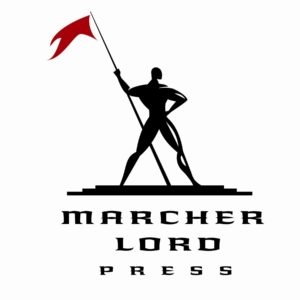Guest Blog: Jeff Gerke
 Jeff Gerke has been called the de facto gatekeeper of Christian speculative fiction. After writing his own speculative fiction and spearheading the launch of a fiction imprint dedicated to Christian speculative fiction at a major Christian publishing company, Jeff branched out on his own to launch Marcher Lord Press, an Indie publishing house whose several major awards lend credence to its claim of being the premier publisher of Christian speculative fiction. His fiction how-to book The Art & Craft of Writing Christian Fiction is available through Amazon or Marcher Lord Press, and Plot Versus Character, his first craft book from Writer’s Digest Books, released in 2010. His new WD fiction craft book, The First 50 Pages, releases in late 2011. Jeff lives in Colorado Springs with his wife, teenage daughter, 10-year-old son, and 2-year-old adoptive daughter from China.
Jeff Gerke has been called the de facto gatekeeper of Christian speculative fiction. After writing his own speculative fiction and spearheading the launch of a fiction imprint dedicated to Christian speculative fiction at a major Christian publishing company, Jeff branched out on his own to launch Marcher Lord Press, an Indie publishing house whose several major awards lend credence to its claim of being the premier publisher of Christian speculative fiction. His fiction how-to book The Art & Craft of Writing Christian Fiction is available through Amazon or Marcher Lord Press, and Plot Versus Character, his first craft book from Writer’s Digest Books, released in 2010. His new WD fiction craft book, The First 50 Pages, releases in late 2011. Jeff lives in Colorado Springs with his wife, teenage daughter, 10-year-old son, and 2-year-old adoptive daughter from China.
– – –
The Birth of Marcher Lord Press
by Jeff Gerke
 Sometimes I’m asked why I created Marcher Lord Press. Not only in the “Why did you do it?” sense, but also in the “Why did you do it like that?” sense. Back in 2007 when I was strategizing all this, I was pretty much making up a new publishing model. Some other folks had pioneered something like it before I had, but I wasn’t aware of them then.
Sometimes I’m asked why I created Marcher Lord Press. Not only in the “Why did you do it?” sense, but also in the “Why did you do it like that?” sense. Back in 2007 when I was strategizing all this, I was pretty much making up a new publishing model. Some other folks had pioneered something like it before I had, but I wasn’t aware of them then.
People wondered why I would create a publishing company and not try to get the books into bookstores. Some people understood why I would try to avoid Christian bookstores, but not why I’d want to avoid all bookstores entirely—or vice versa. Others wondered why I would use print-on-demand technology instead of going the more traditional route. Many wondered how much I was going to charge my authors. Most assumed my covers would be awful—or that I was creating this just as a way publish my own books and make it look a little less like self-publishing.
I did a lot of explaining in the early days. Many, after hearing the explanation, would shake their heads and go, “Well, good luck with that.” It wasn’t until the books started coming out—with great covers and at no charge to my authors, and garnering positive reviews and major awards, that the tone of the questions began to change. Now it wasn’t “Why in the world would you want to sabotage yourself by doing X?” Now it was more, “Wow, I never would’ve thought of doing X. What was your rationale there?”
The main reason I formed the publishing model as I did was because of the challenges I saw before me. I’d realized that getting into Christian bookstores would be not only difficult but inadvisable, as my target audience had given up on finding Christian SF and fantasy in those places. Why should I do all the work and make the sacrifices and pay the costs to try to get somewhere my market wasn’t going? As for getting into secular bookstores, the reasoning was pretty much the same. If my books would be shelved in the religious fiction aisles (“death row”), as I knew they would, the same question remained: why try to get my books there? Besides, I didn’t want to play the “returns” game.
The reasons not to get into bookstores meshed well with the strategy of using POD technology instead of regular offset printing. It would cost more per book to print just one copy or only a few copies as opposed to printing a ton—but then where would I put all those cheaper copies? My garage? My bedroom? Would I have to rent out warehouse space? And if I made a change to a book’s interior (as with a correction) or the cover (as with putting the Christy Award emblem on our winner), I’d be stuck with boxes and boxes of the old version.
The last thing people asked me in 2008 (when MLP officially launched) was “Why would you create a new publishing company now, during a recession?” Of course I hadn’t known, in 2007 and before, that the downturn was coming. But in the years since, as the recession has lengthened and traditional publishing companies have gone belly up, my model is looking smarter and smarter. Which is how I know I didn’t come up with it.
The publishing paradigm has changed. We are now in the age of the niche publisher and the micro-publisher. I have been so pleased to see several new Christian publishing companies spring up—many of them dedicated to SF and fantasy, but not all (because other genres are in need of small presses too)—that are using something like the MLP model. We’re going to see more and more of this in the next five years at least.
What idea do you have? Maybe your story or business idea is so different from the norm that no one gets it. Sometimes that’s a sign that it’s a bad idea (LOL). But other times it’s an indicator that you’re onto something new. Maybe the thing that is next. Just because it doesn’t fit or people don’t understand it, it may not mean you shouldn’t do it.








































I remember when I first heard about Marcher Lord Press. Randy Ingermanson did a interview with you. At that point I was a beginner writer who was just realizing that there might not be a place for my fantasy in the Christian publishing world. Then I read that interview and thanked God (lol).
As far as something that doesn’t fit or people don’t understand it… that’s me! I’m a square peg trying to fit in the round whole of reality. Oh well, at least you guys understand me 😛
Jeff, I don’t know if you remember, but when CSFF toured WhereTheMapEnds, you told us about your plans for Marcher Lord Press. I was one of those not particularly happy with the POD aspect of your publishing model. But lo and behold, you seem to be on the cutting edge because of the direction technology is taking us.
I guess my question is, why don’t some of these small presses that seem to have similar goals band together? Wouldn’t there be strength in doing something bigger? I can think of at least three small presses that are putting out sff from a Christian worldview.
Just wondering.
Becky
Rebecca, we’ve begun work on that on this end, and have about 5 presses involved, I believe. Everyone’s pretty busy right now, but we’re working our way through some of these problems and hope to get a better, unified, handle on marketing, etc., in the days ahead.
Good interview, Jeff.
~Chila Woychik
Port Yonder Press,
Owner, Editor